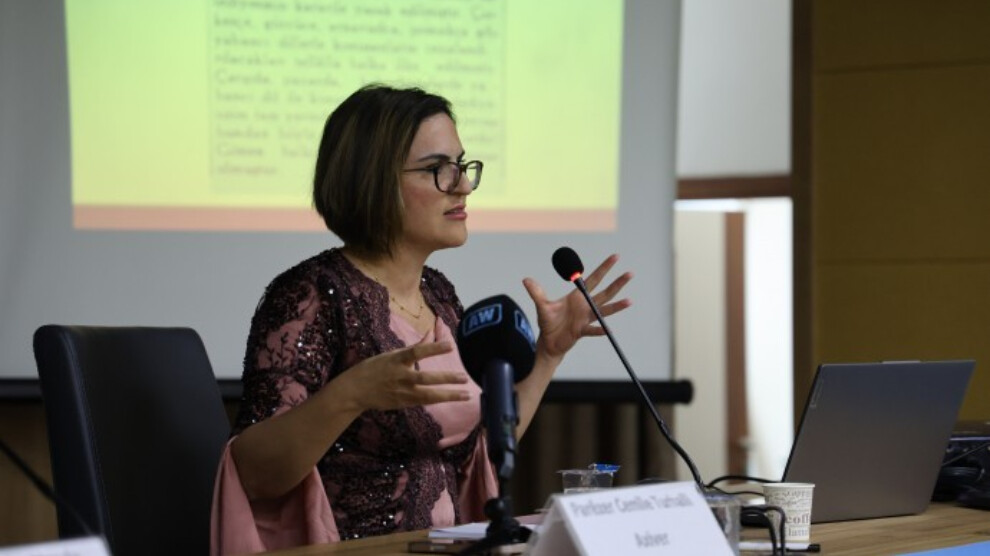Cemile Turhallı: Kurdish must be an official education language
Cemile Turhallı called for Kurdish to be recognized as an official education language at the Kurdish Language Symposium in Van.
Cemile Turhallı called for Kurdish to be recognized as an official education language at the Kurdish Language Symposium in Van.

The Second Kurdish Language Symposium, organized by the Van (Wan) Branch of the Education and Science Laborers’ Union (Eğitim Sen), concluded on its second day. Under the moderation of writer Elif Gemicioğlu Yaviç, the sessions focused on “The socio-political resistance of language” and “Language, politics, and law.” Cemile Turhallı, Co-Spokesperson of the Language, Culture and Arts Commission of the Peoples’ Equality and Democracy Party (DEM Party), and writer-academic Dilawer Zeraq spoke in the final session.
Kurdish must be a language of education
Cemile Turhallı said that "a human being is human through their language', underlining the need for all institutions and organizations to unite around the issue of language. She said: "Kurdish has reached this point under immense pressure. This language is still under threat. When a nation-state seeks to destroy a people, it first targets their language and cultural institutions. After that, it imposes control over the language and culture. Since the day it was founded, the state has waged a relentless campaign to erase Kurdish. But the Kurdish people have resisted this with great determination."
Turhallı called on the state to abandon its policy of denial and continued: "The state must embrace multiculturalism and multilingualism. Kurdish must become a language of education. The status of the language must be recognized. If a language has no status, neither does the people who speak it. In this new period, we must strengthen our struggle to achieve this."
What the state did and failed to do
Writer Dilawer Zeraq spoke about 'The socio-political resistance of language.' In response to the question 'What did the state want, and what did it do?', Zeraq said: "First, they banned the language, they encircled it. When Kurdish was banned, the territorial scope of Turkish was defined. This linguistic territory outlined future steps and shaped state policy accordingly. Since its foundation, Turkey has followed this policy. Once assimilation begins, it may never end, but it can be resisted. Until 1960, schools were built only in city centers, because the state began its assimilation efforts from the urban core. After 1960, these efforts gradually extended to districts and villages. Even after all this, the state has remained unsatisfied with the results of its assimilation campaign. This time, it has turned to marginalizing Kurds, Armenians, and other peoples. Until the 1980 military coup, the state had still not achieved its goal. With the 1982 Constitution, Kurdish was banned."
Zeraq continued: "After 1980, the state failed, and Kurds obstructed the advance of assimilation policies. Between 1925 and 1960, a form of passive civil disobedience developed against the state. Kurds consciously chose not to send their children to schools. They also did something else very important: They withdrew their language from the centers of assimilation and brought it back to their villages and homes. In other words, they withdrew their language from all centers of assimilation. Since 1960, the struggle for the Kurdish language has never stopped."